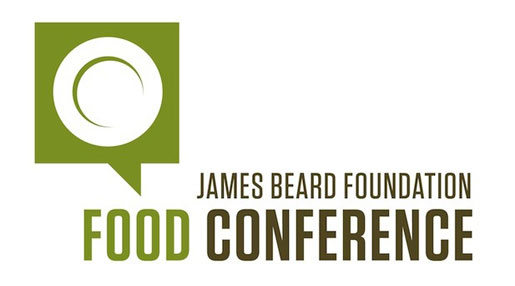
The 2014 JBF Food Conference, taking place October 27–28 in New York City, will explore the intersection of food and health. Our speakers and panelists will discuss the myriad ways in which food supports personal and public health; fails to deliver on the promise of better health; and both drives and responds to other cultural forces in America today.
In anticipation of this two-day event, we’ve been talking about health all month here on the JBF blog. Below, Miriam Arond, director of the Good Housekeeping Research Institute, offers some insights based on the Institute’s research on Americans’ eating habits. Arond will also speak during the first day of the JBF Food Conference. Watch a live broadcast at jbffoodconference.org.
“Health food makes me sick,” wrote humorist and food writer Calvin Trillin in his 1980 essay “Unhealth Food.” His cranky tale, written for a laugh when soy, whole grains and granola were just starting to crop up in mainstream supermarkets, is no longer something that only sparks amusement. In a recent survey of Good Housekeeping magazine readers, 91% said that food is the biggest factor influencing health. In fact, they not only say that food’s a huge determinant of physical health but also of mental health. “I am in a better mood when I eat healthfully,” responded 89% of those surveyed. These are pretty dramatic findings, especially considering that only 12% say that “health is determined by genetics.” They also believe that food is three times more influential than sleep and five times more important than exercising when it comes to affecting health.
The strong correlation between food and well-being is particularly striking, given that photos of sinfully sweet, chocolate-drizzled decadent desserts are constantly popping up on Pinterest, Tumblr, and Instagram. Of course, maybe we shouldn’t be so surprised that these two trends coexist. After all, in our 24/7 tech-connected lives, luscious treats can be a welcome refuge when juicing and kale chips no longer soothe our stress.
While our study suggests that we’ve reached a tipping point, with Americans now recognizing that eating healthfully is key to their body and mind, there’s still a disparity between what they believe and how they act. Yes, they’ve taken steps to eat more consciously: 72% say they eat more fruits and vegetables and 44% are more likely than in the past to choose whole grains over refined ones. But more than half of our respondents—61%—say they don’t eat healthfully—and almost all (90%) wish their diet was healthier than it is. They don’t blame their less-than-ideal eating patterns on not being able to find healthy food in supermarkets or on a lack of government interventions. Instead, the biggest health hurdles they cite are: money (four out of five think healthy food is more expensive); taste (half of them like junk food better); and lack of time (half of them think healthy food takes more time to prepare).
As a magazine that speaks to more than 17 million Americans each month (and an additional 9 million on our website), our mission at Good Housekeeping is to show people how eating healthfully can be affordable, easy, realistic, and delicious. But for massive behavioral changes to take place, we all need to step up to the proverbial plate. There’s a huge opportunity for health practitioners to provide patients with guidelines and resources for eating better. But a study released this past June showed that 75% of doctors feel they receive inadequate training to effectively counsel their patients about diet. It also noted that fewer than 30% of medical schools meet the minimum number of recommended education hours in nutrition and exercise science. The gap between the public’s readiness to learn more about how to eat well and the medical profession’s lack of acceptance of this responsibility is almost as though, years ago, the public had understood that seat belts could be life saving but cars didn’t come equipped with them. Americans need more medical practices to have registered dieticians on board, schools that educate about simple ways to eat nutritiously, packaged food companies to develop ingredient-conscious products, and restaurants to serve tempting and delicious healthy recipes.
In a few days thought leaders from around the country will gather at the James Beard Food Conference to focus on "Food and Health: Is Better Food the Prescription for a Healthier America?" Food, education, government, and health experts will share their insights, experiences, concerns, and recommendations. We need everyone at the table in order for Americans to have the food access, knowledge and tools they need to eat the way they know they should.
--
Miriam Arond is Director of the Good Housekeeping Research Institute and will be presenting these findings and more at the James Beard Foundation Food Conference on October 27-28 in New York City.



-57 web.jpg)


